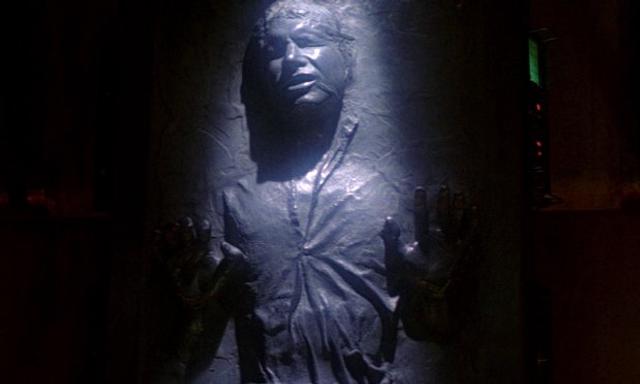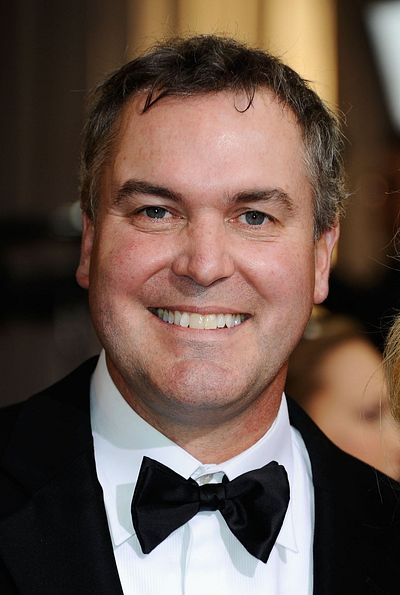As news today came from Collider that Lucasfilm is currently placing all its upcoming 'Star Wars' spinoff movies in carbonite until further notice, it's kind of telling that there's been no outcry from fans or audiences.
Aside from the fact that there's only been two spinoff movies released so far, both of them have been under intense scrutiny from the media and suffered near-catastrophic problems behind the scenes. Tony Gilroy, who was brought on to 'Rogue One' to help right the ship, described how the movie was in "terrible, terrible trouble" and spoke of how he was only able to "improve their position."
Likewise, when we spoke to Ron Howard, the director spoke about his initial belief that he was essentially brought in to get the movie "over the line," but then found that he was given far more leverage to reshoot as he saw fit. Sources vary on the exact figure, but anywhere between 70% and 80% of the movie was remade by Howard, resulting in him receiving a director's credit ahead of Phil Lord and Chris Miller, the original duo assigned to it.
In both instances, hindsight makes it seem clear what the issue was. With 'Rogue One', Gareth Edwards appeared to be fundamentally out of his league with crafting an emotionally rich story in the vein of previous entries. You only need to look at how soulless 'Godzilla' was to understand that he didn't know how to make it happen. With 'Solo', Phil Lord and Chris Miller should have been allowed to complete their work and allow it to fail honourably rather than allowing the production budget to balloon as it did and coming back with something that was ultimately just OK.
(48).gif)
These conclusions, however, relate to movies that actually made it out of production, but what of those that were planned? Josh Trank of the ill-fated 'Fantastic Four' reboot was originally hired to take on the spinoff for 'Boba Fett' and was unceremoniously dumped out by Lucasfilm when the negative reviews began to pour in and on-set troubles creeped out into the news cycle. All went quiet on that project until James Mangold was announced as the director to take charge of it and bring his considerable genre experience to bear on it. Meanwhile, the long-mooted spinoff for 'Obi-Wan' ran through the rumour mill a few times, but nothing solid or confirmed on it beyond a few red carpet soundbites.
In short, there were two spinoffs in the bag and both came to the screen with a black cloud over them - and the likelihood of similar happening to the ones in pre-production was probably too much for Lucasfilm to contend with.
It's hard to know precisely what's going on behind the scenes and it may be that the abject failure - commercially, speaking - of 'Solo' has everyone worried for the future of 'Star Wars' as a whole. Collider's source is keen to point out that the David Benioff and DB Weiss-penned trilogy is still going ahead, as is Rian Johnson's effort. Fundamentally, taking legacy characters like Han Solo, Obi-Wan Kenobi and the like is going to draw comparisons between the source material and what's been made of them. Alden Ehrenreich balanced both a familiarity with Harrison Ford's performance in the role whilst bringing his own charm to it, but much of that was from Lawrence Kasdan's script as well.
With 'Rogue One', you had that ridiculous CGI version of Peter Cushing mucking up scenes with Ben Mendelsohn, not to mention that baffling moment with a digitally de-aged version of Carrie Fisher as Princess Leia. In both cases, it was a technical marvel but a failure for its audience. Your brain automatically rejected it as false, and this in turn dampened the impact of it. Even when Darth Vader turned up, you knew that James Earl Jones' voice had changed from 1983 to today.
'The Force Awakens' trafficked heavily in nostalgia and bringing on Harrison Ford, Carrie Fisher and Mark Hamill was a way of connecting audiences with the franchise's legacy - but beyond that, it was always going to have to move forward. If it means that new stories with new characters will be offered, rather than retracing the lines that got them to where it is today, then placing the spinoffs on hold is only a good thing. If it means the writers can forge ahead with new ideas rather than trying to plumb the depths of what's come before, then all the better for it.




















































































